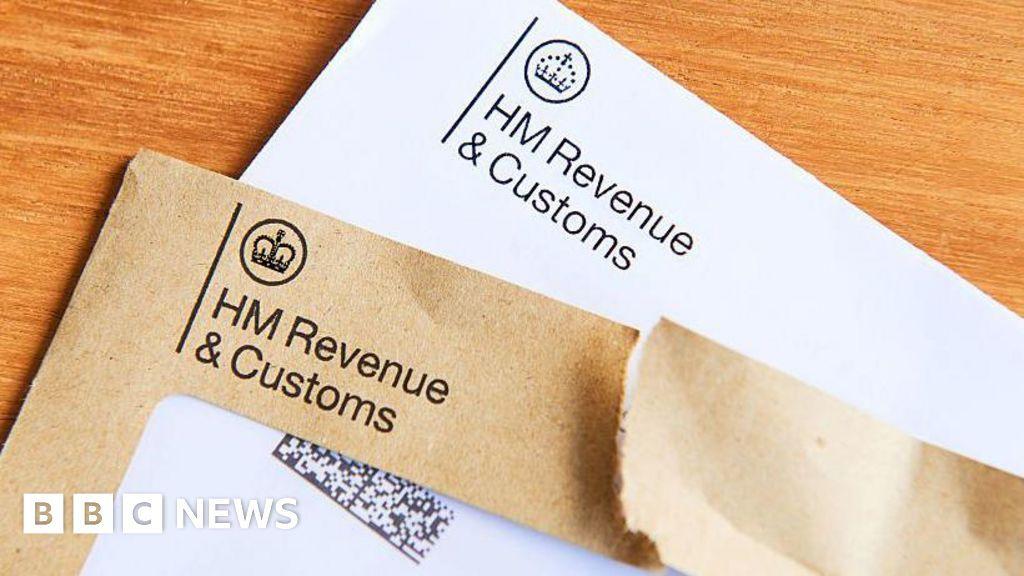IRS Pauses Modernization Efforts to Reassess AI Integration in Tax System
5 Sources
5 Sources
[1]
US IRS to re-evaluate modernization investments in light of AI technology
WASHINGTON, March 14 (Reuters) - The U.S. Internal Revenue Service is taking a "strategic pause" in its technology modernization investments to re-evaluate its operating approach in light of new artificial intelligence technologies, a senior IRS career technology official said on Friday. The agency will review a number of technology modernization initiatives that have been taken in recent years, including a new direct free filing system for tax returns that was launched last year under the Biden administration, the official told reporters. The official said the IRS did not have a specific number of staff cuts in mind as a result of the technology pause, but said there would be an opportunity to "realign the workforce to those new ways of doing business." Reporting by David Lawder; Editing by Paul Simao Our Standards: The Thomson Reuters Trust Principles., opens new tab Suggested Topics:Artificial Intelligence
[2]
US IRS to Re-Evaluate Modernization Investments in Light of AI Technology
WASHINGTON (Reuters) - The U.S. Internal Revenue Service is taking a "strategic pause" in its technology modernization investments to re-evaluate its operating approach in light of new artificial intelligence technologies, a senior IRS career technology official said on Friday. The agency will review a number of technology modernization initiatives that have been taken in recent years, including a new direct free filing system for tax returns that was launched last year under the Biden administration, the official told reporters. The official said the IRS did not have a specific number of staff cuts in mind as a result of the technology pause, but said there would be an opportunity to "realign the workforce to those new ways of doing business."
[3]
US IRS pauses modernisation investments to evaluate AI technology
The US Internal Revenue Service is taking a "strategic pause" in its technology modernization investments to re-evaluate its operating approach in light of new artificial intelligence technologies, a senior IRS career technology official said on Friday. The agency will review a number of technology modernisation initiatives that have been taken in recent years, including the new Direct File free filing system for tax returns that was launched last year under the Biden administration, the official told reporters. As the Trump administration prepares a second wave of mass firings at federal government agencies, a person familiar with IRS plans told Reuters that the tax collection agency was planning to eliminate 20% to 25% of its 100,000-strong workforce. The IRS official said the agency did not have a specific number of staff cuts in mind as a result of the technology pause, but said there would be an opportunity to "realign the workforce to those new ways of doing business." US Treasury Scott Bessent has said numerous times that the IRS will be able to rely on "the great AI revolution" to improve tax collections and customer service. He has not named a specific budget or staff reduction goal. The official said IRS technology has been built over many decades, often with many external contractors. "Unfortunately, this often means that a large investment yields a small outcome," said the official, who spoke to reporters on condition of anonymity. He added that the review "will help us overcome the challenges we've observed and experienced, untangle from multiple integrator solutions, situations and solutions, and realign us to achieve the technological modern state we've been pursuing for many years." The official added that the evaluation has not affected the 2025 tax filing season, with IRS systems continuing to accept tax returns and send out refund payments. The pause marks another shift away from the original $80 billion in IRS investment funding over a decade that was included in the 2022 Inflation Reduction Act, mainly a clean energy subsidy law. Clawing back those investments in modernization, customer service and tax collections has been a target of Republicans in Congress, who argued that the funding was aimed at harassing taxpayers. Subsequent stop-gap government funding measures have whittled that down by as much as half. Technology upgrades over the past two years included new scanning technology to automate the processing of paper returns, AI customer assistance chatbots, and initial investments to replace aging computer systems based on 1960s-era technology architecture. The Treasury under the Biden administration last year estimated that the IRS funding, including from technology improvements, would yield $561 billion new revenue over a decade.
[4]
US IRS to re-evaluate modernization investments in light of AI technology
WASHINGTON (Reuters) - The U.S. Internal Revenue Service is taking a "strategic pause" in its technology modernization investments to re-evaluate its operating approach in light of new artificial intelligence technologies, a senior IRS career technology official said on Friday. The agency will review a number of technology modernization initiatives that have been taken in recent years, including a new direct free filing system for tax returns that was launched last year under the Biden administration, the official told reporters. The official said the IRS did not have a specific number of staff cuts in mind as a result of the technology pause, but said there would be an opportunity to "realign the workforce to those new ways of doing business."
[5]
US IRS pauses modernization investments to evaluate AI technology
* IRS to assess investment costs vs outcomes, official says * IRS to 'realign' workforce, no staff cut target identified * AI to play bigger role in collecting taxes, Bessent says WASHINGTON, March 14 (Reuters) - The U.S. Internal Revenue Service is taking a "strategic pause" in its technology modernization investments to re-evaluate its operating approach in light of new artificial intelligence technologies, a senior IRS career technology official said on Friday. The agency will review a number of technology modernization initiatives that have been taken in recent years, including the new Direct File free filing system for tax returns that was launched last year under the Biden administration, the official told reporters. of mass firings at federal government agencies, a person familiar with IRS plans told Reuters that the tax collection agency was planning to eliminate 20% to 25% of its 100,000-strong workforce. The IRS official said the agency did not have a specific number of staff cuts in mind as a result of the technology pause, but said there would be an opportunity to "realign the workforce to those new ways of doing business." U.S. Treasury Scott Bessent has said numerous times that the IRS will be able to rely on "the great AI revolution" to improve tax collections and customer service. He has not named a specific budget or staff reduction goal. The official said IRS technology has been built over many decades, often with many external contractors. "Unfortunately, this often means that a large investment yields a small outcome," said the official, who spoke to reporters on condition of anonymity. He added that the review "will help us overcome the challenges we've observed and experienced, untangle from multiple integrator solutions, situations and solutions, and realign us to achieve the technological modern state we've been pursuing for many years." The official added that the evaluation has not affected the 2025 tax filing season, with IRS systems continuing to accept tax returns and send out refund payments. The pause marks another shift away from the original $80 billion in IRS investment funding over a decade that was included in the 2022 Inflation Reduction Act, mainly a clean energy subsidy law. Clawing back those investments in modernization, customer service and tax collections has been a target of Republicans in Congress, who argued that the funding was aimed at Subsequent stop-gap government funding measures have whittled that down by as much as half. Technology upgrades over the past two years included new scanning technology to automate the processing of paper returns, AI customer assistance chatbots, and initial investments to replace aging computer systems based on 1960s-era technology architecture. that the IRS funding, including from technology improvements, would yield $561 billion new revenue over a decade. (Reporting by David Lawder; Editing by Paul Simao and Chizu Nomiyama)
Share
Share
Copy Link
The U.S. Internal Revenue Service announces a strategic pause in its technology modernization investments to evaluate the potential of AI technologies, potentially reshaping its operations and workforce.

IRS Announces Strategic Pause in Modernization Efforts
The U.S. Internal Revenue Service (IRS) has announced a "strategic pause" in its technology modernization investments to reassess its operational approach in light of emerging artificial intelligence (AI) technologies. This decision, revealed by a senior IRS career technology official, marks a significant shift in the agency's long-term modernization strategy
1
.Scope of the Review
The IRS plans to review several recent technology modernization initiatives, including the new Direct File free filing system for tax returns launched under the Biden administration. This comprehensive evaluation aims to align the agency's technological infrastructure with the potential of AI advancements
2
.Workforce Implications
While the IRS official stated that no specific staff reduction targets have been set, the pause is expected to provide an opportunity to "realign the workforce to those new ways of doing business"
3
. This statement comes amidst reports of potential significant workforce reductions in federal agencies, with some sources suggesting the IRS might consider eliminating 20% to 25% of its 100,000-strong workforce.AI's Role in Tax Collection
U.S. Treasury Secretary Scott Bessent has repeatedly emphasized the potential of "the great AI revolution" to enhance tax collections and customer service. However, specific budget or staff reduction goals have not been disclosed
5
.Challenges and Expectations
The IRS official acknowledged that the agency's technology infrastructure, built over decades with multiple external contractors, often results in large investments yielding small outcomes. The review aims to address these challenges, streamline solutions, and achieve a more efficient, modern technological state
3
.Related Stories
Impact on Current Operations
The official assured that the evaluation process has not affected the 2025 tax filing season, with IRS systems continuing to accept tax returns and process refund payments as usual
5
.Funding Context
This pause represents a shift from the original $80 billion IRS investment plan outlined in the 2022 Inflation Reduction Act. Subsequent budget negotiations have potentially reduced this funding by up to half. The Treasury had previously estimated that these investments, including technology improvements, would generate $561 billion in new revenue over a decade
3
.Recent Technological Upgrades
In the past two years, the IRS has implemented several technological upgrades, including new scanning technology for processing paper returns, AI-powered customer assistance chatbots, and initial investments in replacing aging computer systems based on 1960s-era architecture
5
.References
Summarized by
Navi
[4]
[5]
Related Stories
IRS Plans to Leverage AI Amid Massive Workforce Cuts
10 May 2025•Policy and Regulation

HMRC Deploys AI to Monitor Social Media for Tax Evasion, Raising Privacy Concerns
12 Aug 2025•Policy and Regulation

Potential Cuts to US AI Safety Institute Raise Concerns in Tech Industry
20 Feb 2025•Policy and Regulation

Recent Highlights
1
ByteDance's Seedance 2.0 AI video generator triggers copyright infringement battle with Hollywood
Policy and Regulation

2
Demis Hassabis predicts AGI in 5-8 years, sees new golden era transforming medicine and science
Technology

3
Nvidia and Meta forge massive chip deal as computing power demands reshape AI infrastructure
Technology





